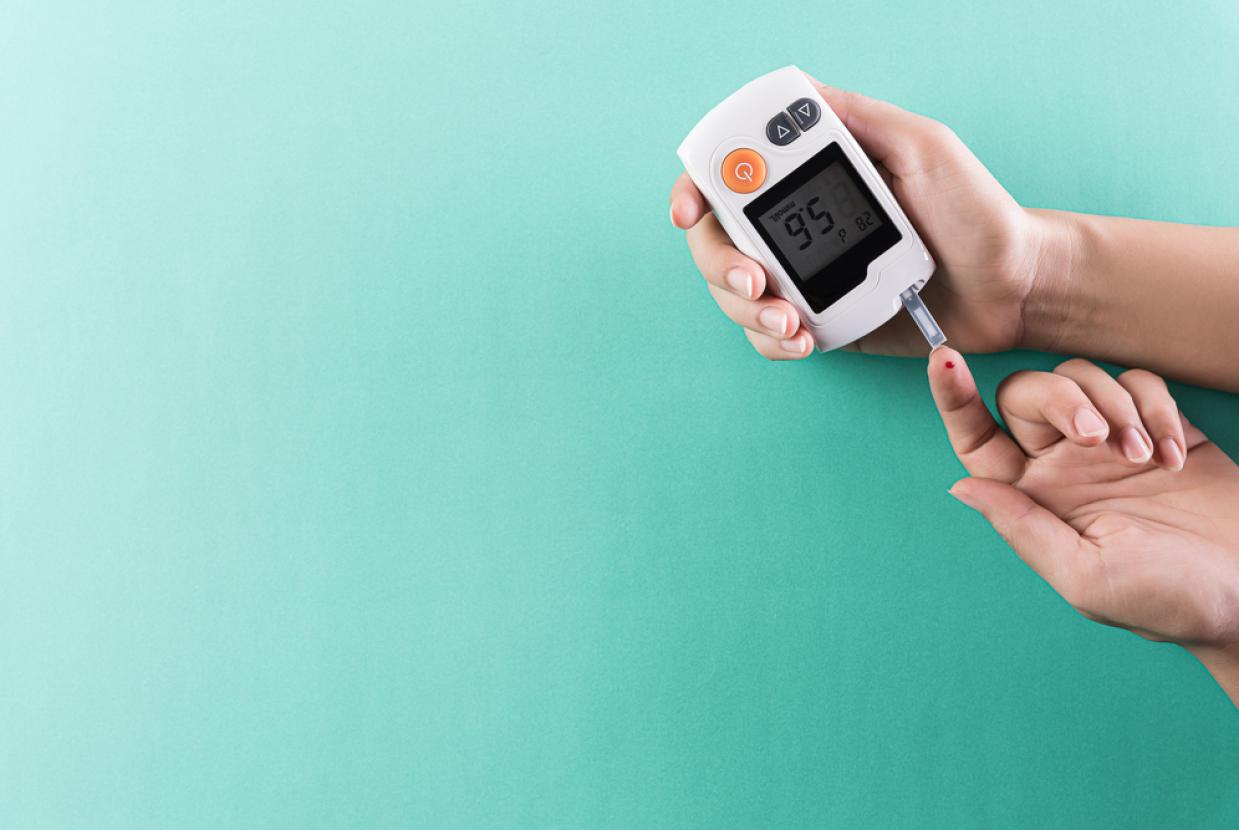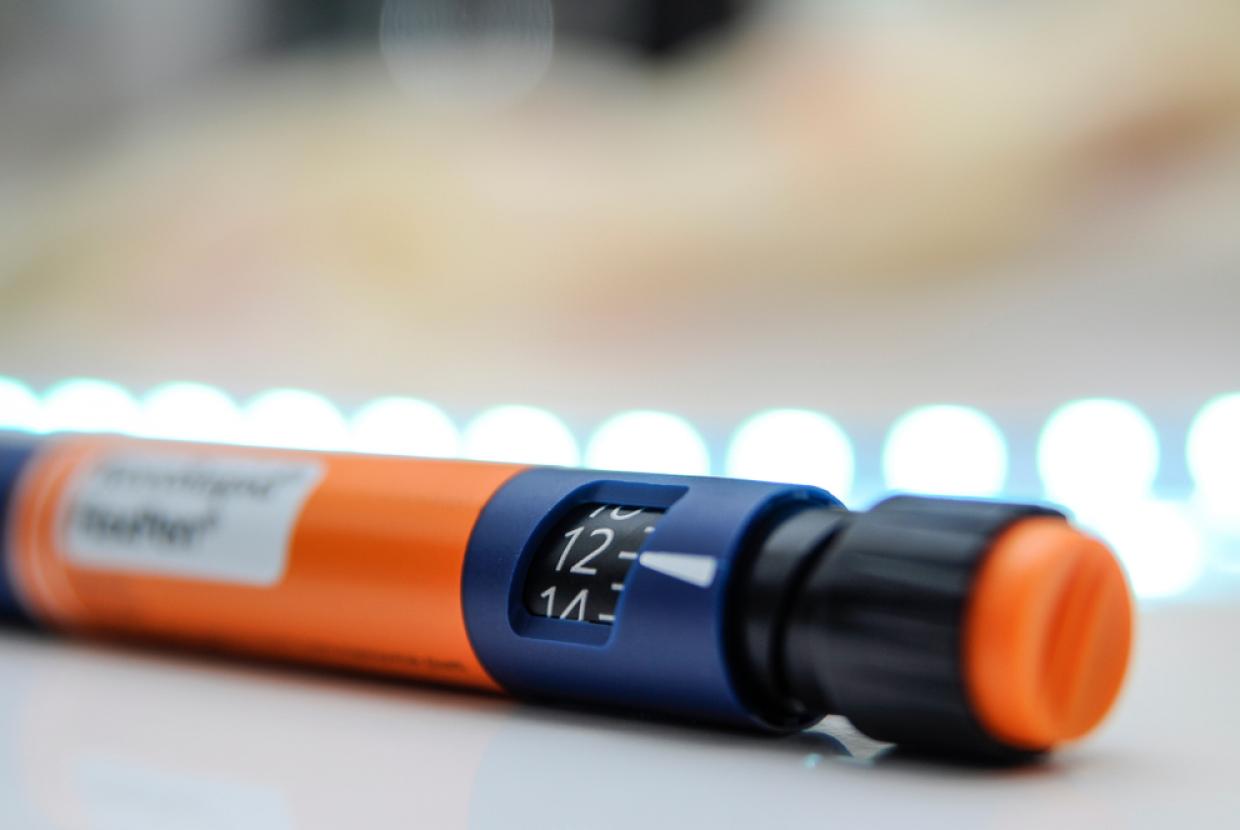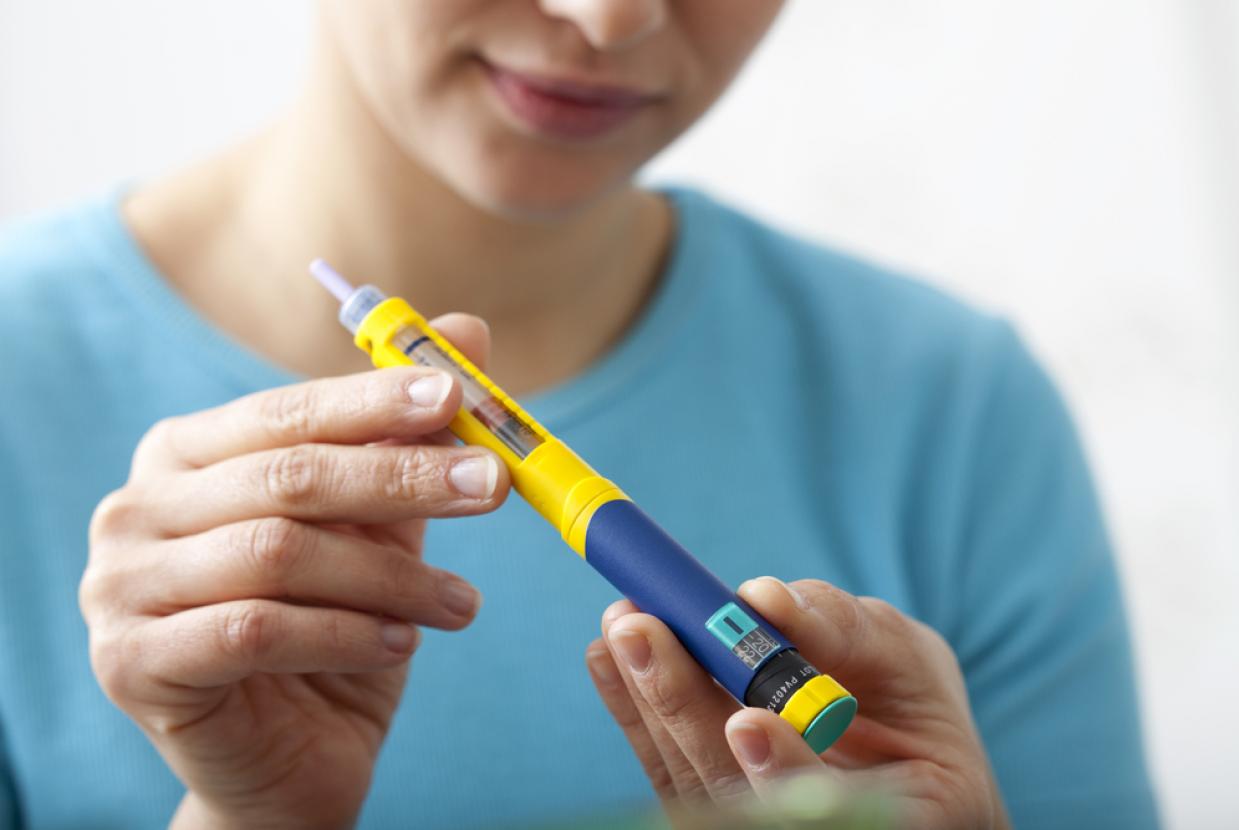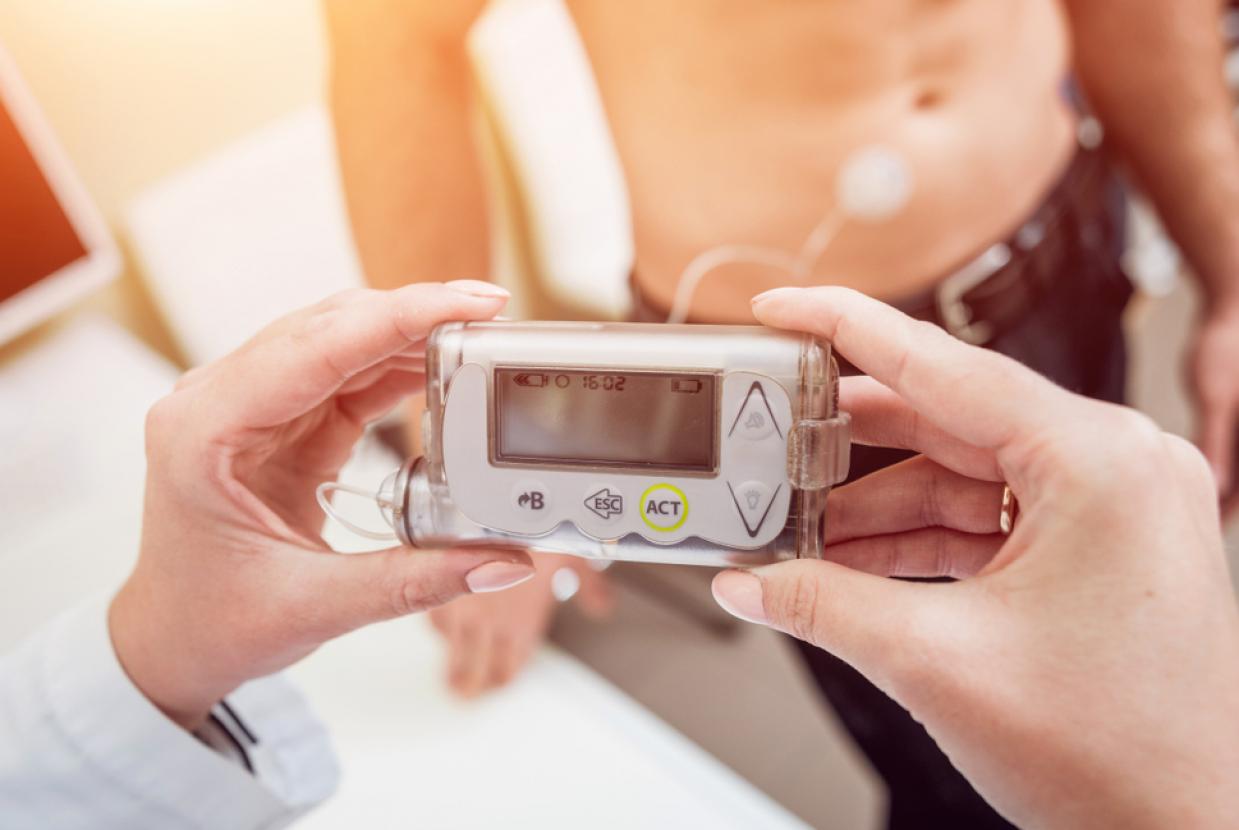What Is Diabetes Remission?
Diabetes / Healthy WeightDiabetes remission in people with type 2 diabetes means that your blood sugar levels are below the diabetes range without needing to take any diabetes medication.
People with type 1 diabetes cannot put their diabetes into remission though our scientists are working hard to discover how this might be possible and to develop new treatments. Some people with type 1 can start to produce some of their own insulin again with islet transplants.
Here we will explain how adults with type 2 diabetes may be able to put their diabetes into remission, highlight our ground-breaking research and share the stories of people with type 2 diabetes who are in remission.
What is diabetes remission?
Remission means that your blood sugar levels (also known as blood glucose levels) are below the diabetes range, usually without you needing to take any diabetes medication.
Remission is when your HbA1c — a measure of long-term blood glucose levels — remains below 48mmol/mol or 6.5% for at least three months, without diabetes medication.
This definition has been agreed by a team of international experts from here at Diabetes UK, the American Diabetes Association and the European Association for the Study of Diabetes.
Some people call this ‘reversing type 2 diabetes’, but we use the term remission because your blood sugar levels can rise again. If your regular blood tests show your HbA1c remaining below 48 mmol/mol or 6.5%, talk to your healthcare team to discuss diabetes remission and how this applies to you.
Is remission a cure for type 2 diabetes?
Diabetes remission is quite a new idea. A lot of research is needed before we fully understand it. We don’t have enough evidence that remission is permanent. It needs to be maintained and in many cases, blood sugar levels can rise again, which is why it is so important to continue your diabetes appointments while in remission.
How can you put diabetes into remission?
The strongest evidence we have suggests that diabetes is mainly put into remission by weight loss. If you live with obesity or overweight, you are more likely to put your diabetes into remission if you lose a substantial amount of weight – 15kg (or 2 stone 5lbs) – safely and as quickly as possible following your diagnosis.
If you do want to start losing weight quickly to work towards remission, it's important to talk to a healthcare professional before you begin, to make sure it’s right for you. Also, you may need to reduce or stop any medications – insulin or sulphonylurea, for example – before you begin losing weight.
Rapid weight loss is not advised if you are a healthy weight, under 18, pregnant, breastfeeding or have ever been diagnosed with an eating disorder.
How can losing weight help put your diabetes into remission?
To understand how losing weight can help someone go into remission, we need to understand why obesity or overweight can lead to type 2 diabetes. If someone’s carrying extra weight around their middle, fat can build up around important organs like the liver and pancreas. This makes it more difficult for those organs to work properly, leading to type 2 diabetes.
But not everyone who develops type 2 diabetes lives with obesity or overweight. There are other factors, like age, ethnicity and family history that play a role in our risk of type 2 too. These factors influence how well the liver and pancreas work, and also where we store our fat.
We can’t change those things, but we can usually change our weight. Our scientists believe that just as storing fat around the liver and pancreas affects how type 2 develops, losing fat affects remission. They want to find out if it can help the liver and pancreas to start working properly again.
Does weight loss have other benefits?
Weight loss has many benefits, even if it doesn’t lead to remission. People with obesity have an increased risk of serious health conditions, including heart attack, stroke and certain cancers. Research has shown that losing just 5% of your body weight can:
- lower your blood pressure and cholesterol levels
- improve your blood sugar levels.
You may also need fewer medications.
Can anyone with type 2 diabetes go into remission?
There’s lots we’re still trying to understand. For example, we don’t know how or whether every person with type 2 diabetes can go into remission.
Remission is more likely if you lose weight as soon as possible after your diabetes diagnosis. But, we know some people have put their diabetes into remission 25 years after being diagnosed.
We are funding further research to try and find ways for more people to go into remission. For example, the ReTUNE study is looking at how people who don’t live with obesity can put their diabetes into remission.
Does being in remission prevent future complications?
By being in remission, you’re keeping your blood sugar levels below the diabetes range. Losing weight and being in remission also helps to keep your blood pressure and cholesterol down.
Having blood sugar, blood pressure and cholesterol levels in a healthy range is usually linked to a lower risk of complications, such as serious problems with your eyes, feet or heart. So, remission is likely to do the same.
However, we don’t know enough to say confidently that remission leads to reduced complications. That is why you need regular health checks even when you are in remission and your blood sugar levels are healthy – to ensure that any new, or existing complications, can be monitored and treated properly.
Is remission permanent?
We have reports of people who have been in remission for up to 15 years. However, even if you are in remission, it is always possible that your blood sugar levels could come back into the diabetes range.
Remission is not a one-off event, but a process. It needs to be maintained, and the best way to do that is to keep to a healthy weight and stay active.
Staying in remission
Remission is not a one-off, once-and-for-all event. It needs to be maintained, because there’s always a chance that your diabetes might return.So, you need ongoing support to keep an eye on your weight, and if it starts to creep up again, ask for extra support to adjust your eating pattern and activity levels.
How can I get started?
So far, there is strong research evidence for two approaches that can lead to remission. Both involve losing a significant amount of weight fairly rapidly. One is to follow an intensive, low-calorie weight-loss programme of around 850 calories a day. The other approach is weight-loss or bariatric surgery, which helps you to feel full quicker and so helps you to reduce the amount you eat.
But while these are the approaches with the best quality research to put your type 2 diabetes into remission, there are other, more gradual approaches. We know that some people in remission got there by losing weight through the Mediterranean diet or a low-carb diet. Everyone’s different and what works for some may not for others.
You should ask your diabetes team for help with weight loss.They’ll be able to see if there’s a weight management service in your area, where you’ll get support and advice from a dietitian. Whichever approach you consider, it’s important to seek support from your healthcare team. Wondering where to begin? Use our food tool to get started.



































